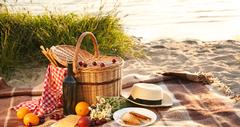Visiting the oldest house in Brooklyn, NYC may not seem at first like the most exciting thing to do on a vacation, but stepping onto the grounds of the Wyckoff is an interesting way to connect with a history that helped form the very culture of New York.
No matter the time of year, there are always new and fun things to see and do here.
History
Pieter Wyckoff, a Dutch speaking immigrant from the Netherlands, arrived in what is now NYC in April 1637. The house (and the surrounding farm) was established in 1650 and has gone through many changes to turn into the house that is available to visit today. After a fire destroyed the house, it was rebuilt to historical accuracy in 1982, which is when it was opened as a museum.
Permanent Exhibits
As the oldest building in New York City, the main exhibit is the house itself as well as the property surrounding the house. The home itself is decorated as it may have been when it was owned by Pieter Wyckoff in the 1600s and there are tours offered with a guide every half an hour from 1pm to 4pm on Friday and Saturday.
Also offered once a month are Free Family Days, which are every third Saturday between 11am and 3pm. Every month features some different hands on family based activities that help guests explore the history of the house. All activities are seasonally appropriate, located more outside during the warmer months and more inside during the cooler ones. Everyone is welcome to attend, although the activities tend to revolve more around children between the ages of 4 years old and 10 years old. No reservation is required, but an adult must attend with every child. Check the calendar for additional information. Make sure to dress appropriately for the weather.
Contemporary Art - The Wyckoff House participates in the artists in residence program, offering a chance for local artists to apply to display their art by interpreting the local history through their own artistic lens. The program lasts for ten months and is supported by program partners, like Dutch Culture (USA), Weaving Hand, Footprints Restaurant, and Textile Arts Center.
After visiting the house, make sure to check out the urban farm that is located on the 1.5 acres outside the house. The farm grows a variety of produce, including medicinal plants, dye plants, edibles, and native plants. The goal of the farm is to grow historically accurate crops that can still be used and eaten by the local community today, such as flax, corn, tobacco, peaches, kale, and tomatoes. The medicinal garden, made mostly of herbs, are used in some of the workshops run at the house on how to be self-sufficient and use medicine alternatives. The native plants provide both sustenance and habitat for the pollinators (there are also bees that live on the property). The dye plants come into play for many of the summer camp projects as well as other workshops held on the farm.
Educational Opportunities
School field trips are an important part of any visit on the house/museum. In fact, more than 5000 students visit every year! The focus on interactive, hands on experiences for the students makes it a frequent favorite of teachers looking to get their students more involved in history. The basis of the museum’s theory on field trips is what they call inquiry based, meaning that the learner is the one driving forward the lesson. This gives the student the ability to control the pace, ask questions, and use critical thinking skills. There are four base programs to choose from: Farming & Science, Colonial Life, Voyage (to a New World), and African American Lives. There are also a variety of hands on activities including Quill Pen Writing, Seed Planting, Butter Churning, and more.
Fees are assessed per group, with a maximum group size of up to 30 students (w/ 5 adults) for groups with students from Kindergarten through 5th grade, up to 25 students (w/ 5 adults) for groups with students from 6th through 8th grade, and up to 20 students (w/ 5 adults) for groups with students from 9th through 12th grade. Reservations are required in advance.
Shopping
The shop located at the Wyckoff offers a small variety of gifts and souvenirs. There is apparel (shirts, aprons, onesies, and hats), games/toys (chalk, quill pens, penny whistles, and graphic novels), and other gifts (Dutch clogs, puzzles, etc) to purchase and help support the house and its important mission.
Wyckoff House Museum, 5816 Clarendon Road, Brooklyn, NY, 11203, Phone: 718-629-5400, website, Map





